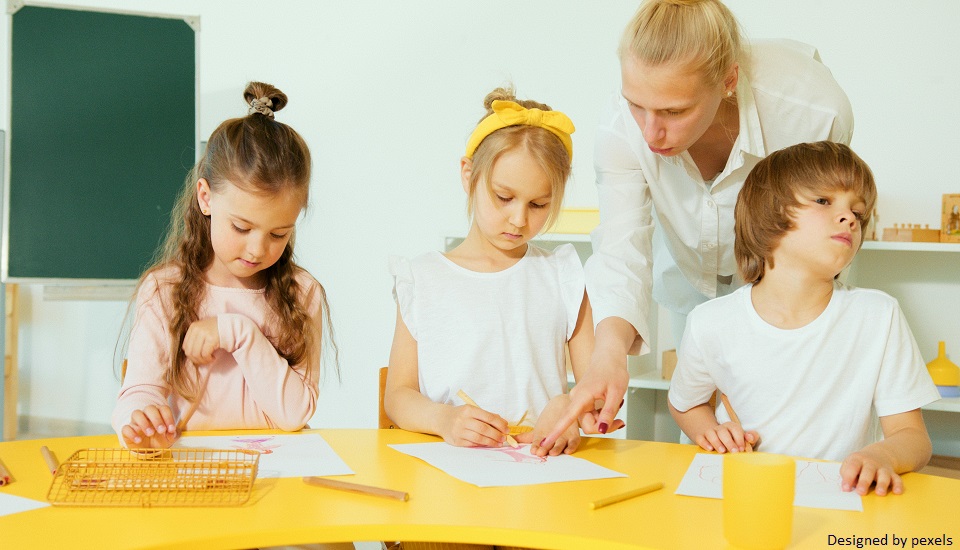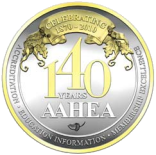How Montessori Education Supports Kids With Learning Differences?
16th December 2024

Did you know that more than 7 million students globally have learning differences? That's more than 13% of total public school enrollment!
However, there is no need to fear, because Montessori classrooms are here to save the day. These inclusive, adaptable settings not only accommodate diverse learning needs but also empower children to discover and learn at their own pace. Those teachers who have pursued courses like Montessori teacher training courses in Hong Kong know it really well.
If you want to know more about the Montessori approach and how it creates a vibrant, supportive, and engaging educational journey for children with special needs, then we have got you covered.
Let's get to explore about Montessori teaching approach and how it creates a more inclusive and effective learning experience!
Before you move to the topic, can we ask you a quick question? Do you follow us on Social Media? If not, then you’re missing out on a lot of informative content. We regularly share upgraded educational content, tips, feedback, and more. Check us out by clicking the profiles here - Facebook / Twitter / LinkedIn / Pinterest / Instagram / YouTube
Understanding Montessori Methods

Source: happynestacademy.com
The Montessori teaching method is like a treasure chest full of wonders for kids, especially those with learning differences! Let's dive into what makes it so special and how it can be a perfect fit for every child's unique way of learning.
Key Principles and Curriculum
Montessori education revolves around several key pillars. First, it's all about hands-on learning, kids don't just read about things; they experience them. The curriculum spans fundamental areas like math, science, reading, writing, and language. Each subject is presented in an engaging way that appeals to a child's natural interests. The best part? Learning is tailored to each child's developmental stage, making it a welcoming haven for kids with learning differences.
Structure of a Montessori Classroom
In a Montessori classroom, structure meets freedom in the best possible way. Let's look at some features that make these classrooms uniquely effective for every learner, especially those with special needs.
- Multi-Age Classrooms
Montessori classrooms break away from the traditional mold and group children of varying ages together. This setup is like a hive of activity where kids learn from and with each other. Older students often guide the younger ones, fostering leadership skills and empathy. Meanwhile, younger kids get to learn at their own rhythm, in a less pressurized environment. This multi-age approach creates a supportive space where mutual learning happens naturally.
- Independent Exploration
Step into a Montessori classroom, and you'll see children absorbed in their own little worlds of discovery, moving around and exploring different learning stations. The classrooms are designed for them to learn independently, with teachers playing the role of gentle guides rather than instructors, who are there to spark interest and encourage curiosity. Children with learning differences thrive here, exploring topics that captivate them in a sensory-rich environment.
- Child-Directed Pacing
In Montessori education, every child's learning journey is unique. The pace is dictated by the student, so there’s no rush or pressure. This child-directed path ensures that learning is natural and enjoyable, allowing students who need extra time to engage deeply with the material to do so. For children with learning differences, this is pure gold! They can take their time to understand new concepts without feeling hurried or left behind.
With these incredible features, the Montessori method offers an inclusive and adaptive approach that embraces and supports each child's individual learning style and needs, making learning an exciting adventure for everyone!
Montessori Education and Learning Differences
- Supporting Students with Learning Disabilities
In the amazing world of Montessori education, students with learning disabilities benefit immensely from a supportive and flexible learning environment. With conditions like ADHD, dyslexia, and dyscalculia being common among students, Montessori classrooms stand out for their inclusive approach.
Here, students are encouraged to explore and learn at their own pace, with hands-on activities fueling their curiosity. Teachers are present as gentle guides, always ready to lend support and encouragement. Such an environment allows students to cultivate self-confidence and stay motivated, free from the pressures of a traditional classroom setting.
- Inclusivity for Developmental Disabilities
For students with developmental disabilities like autism and Down syndrome, the Montessori method ensures they remain part of the classroom community. Gone are the days of isolation! Montessori classrooms are designed to be inclusive, providing an environment where students learn through interactive and sensory-rich activities.
By engaging in group activities and learning from their peers, these students improve their communication and social skills, all while feeling an integral part of the educational journey.
- Addressing Behavioural Problems
No more dreaded time-outs! In Montessori settings, students with behavioural challenges find a nurturing environment that teaches them self-regulation. Rather than punishment, teachers offer resources and strategies to help students understand and manage their emotions positively. Through peer interaction and self-guided learning, students develop a sense of responsibility and empathy, realizing the impact of their behaviours.
Benefits of Sensory Exploration
- Enhancing Learning Through Senses
Montessori education is a sensory playground! This method stands out for its emphasis on learning through the senses. Whether it's touching, tasting, seeing, or hearing, each activity is designed to engage different sensory pathways. This multi-sensory approach not only makes learning more engaging and fun but also ensures that concepts are grasped deeply and intuitively. Students enjoy learning because every lesson is an adventure for the senses!
- Impact on Students with Learning Differences
Students with learning differences particularly thrive in a sensory-rich environment. For children who face difficulties in traditional learning methods, the ability to engage multiple senses opens up a new world of possibilities. It helps in strengthening their neural connections, leading to better retention of information and a more profound understanding of concepts. The engaging and stimulating activities encourage them to explore and learn without fear, making Montessori a perfect fit for students of all abilities.
Key Criteria for Montessori Classroom Selection
Selecting the perfect classroom for a child with learning differences can be both an exciting and overwhelming experience! But how do you ensure the classroom you choose is the right fit? Let’s find that out!
- Structure and Support: Look for a classroom that embraces a supportive learning structure. Montessori classrooms excel at this by providing individualized attention and peer support. This nurturing environment helps boost confidence and fuels a love for learning.
- In-Class Accommodations: Assess whether the classroom can cater to the specific needs of your child. For instance, if overstimulation is a concern, ensure there are strategies or spaces designed to minimize distractions.
- Accessibility: If your child has a physical disability, check if the classroom and school facilities are equipped with the necessary accommodations. Montessori settings are generally designed to be accessible, providing children with the freedom to move and learn independently.
Considering Montessori education can be a significant step towards giving your child with learning differences a rewarding and fulfilling educational journey. Each aspect of the Montessori method, from sensory exploration to personalized pacing, gears toward inclusivity and adaptive learning, which might just be the perfect fit for your child!
Final Thoughts
Montessori education holds a powerful and inspiring approach for children with learning differences! It offers an inclusive environment where all students are welcome and encouraged to thrive at their own pace. The focus on independent exploration, multi-age classrooms, and sensory learning creates a nurturing space that celebrates each child's unique abilities.
From students with learning and developmental disabilities to those with physical challenges, Montessori methods provide the tailored educational support needed for every child to excel.
If you’re seeking a supportive educational setting for your child with different learning difficulties, then the Montessori method might be the perfect fit. So start pursuing courses like Montessori teacher training courses in Hong Kong to embrace this innovative approach and support our youngsters as they embark on their exciting educational journey!
We believe education should be accessible for everyone. That’s why we don’t charge for our blogs. Find the right course that will help you in your career with us, contact us at - 6621056101. You can mail us at act@asiancollegeofteachers.com.












